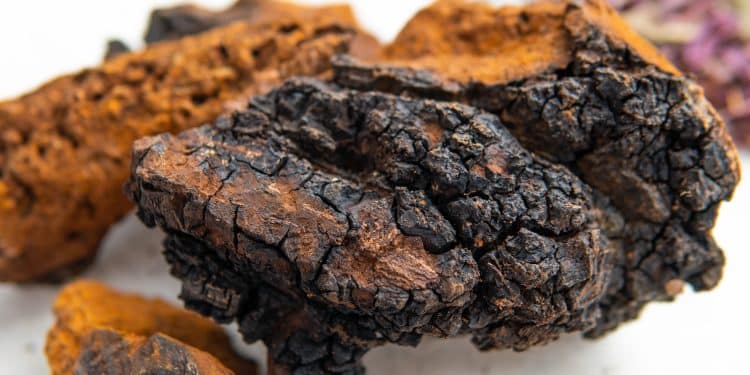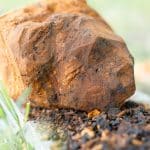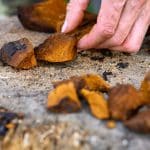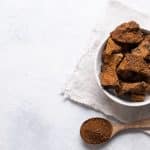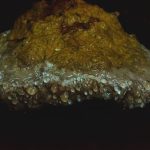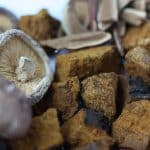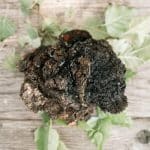Chaga mushrooms are known for their health benefits, but could they help prevent and manage diabetes? According to the latest scientific studies, the answer is a definitive yes! We investigated chaga mushrooms for their hypoglycemic potential, and we’re pretty impressed by what we found.
What is Diabetes?
Diabetes (diabetes mellitus) is a chronic health condition that impacts the ability of your body to convert the foods (more specifically, carbohydrates and sugars) that you eat into energy. A healthy body breaks carbohydrates into sugars and releases these sugars into the bloodstream. Then, the pancreas releases insulin, a peptide hormone, which allows your cells to take in sugars and use them for energy.
People with diabetes do not make enough (or any) insulin, or they have problems using the insulin correctly. So, sugar cannot enter cells and deliver energy to the body.
The Two Types of Diabetes Explained
Type 1 and Type 2 diabetes lead to elevated blood sugar levels, as well as diabetes complications, which are a result of increased blood sugar. However, the mechanisms underlying these diseases are different.
Type 1 diabetes is typically inherited and begins early in life, usually during childhood or the early teen years.
People who have this type of diabetes do not make insulin. So, they have to take insulin shots so that their bodies can convert food to energy.
Type-2 diabetes is usually a result of a bad lifestyle, though those who have diabetes in their family histories are more likely to develop it. People with this type have a high level of insulin resistance (not good at responding to insulin) or they do not produce as much insulin as they should.
In addition to insulin, your type 2 diabetes treatment might include taking medication for your diabetes.
Common Symptoms of Diabetes
Early symptoms of diabetes include increased hunger and thirst, a constant need to pee, dry skin, and weight loss. All these symptoms go away once the person starts taking insulin.
- eye problems
- slower wound healing
- nerve pain and damage
- skin infections
- kidney issues
Is Chaga Good for Diabetes?
According to animal studies, the chaga mushrooms have incredible potential for helping with diabetes. This scientific study investigated the effects of the chaga mushrooms polysaccharide on type 2 diabetes caused by streptozotocin in diabetes mice, as well as potential mechanisms for its anti-diabetic effects. Mice were fed high-fat diets and given 900 mg of chaga extract. The researchers examined the effects of Inonotus obliquus (chaga) polysaccharides on the blood glucose levels at rest, which decreased substantially following administration of the chaga.
Although more studies are needed, the activation of PI3K-Akt pathway may be a mechanism for chagas anti-diabetic effects. This pathway contributes to metabolism and cellular growth, and damage to it is strongly associated with type 2 diabetes.
Does Chaga Lower Blood Sugar? The Hypoglycemic Effects of Chaga Mushrooms
Chaga modulates blood glucose levels and provides a hypoglycemic effect on diabetes mice. An animal study investigated chaga mushrooms effects on diabetic mice, comparing it with its effects in non-diabetic mice. While inonotus obliquus did not influence the blood glucose levels of healthy mice, it did greatly reduce the glucose levels in mice that had diabetes. In addition, Chaga helped to repair the pancreas of mice with tissue damage related to diabetes.
Can Chaga Mushroom Help with Neuropathy?
According to Diabetes Research, diabetic neuropathy and associated renal failure are the primary health concerns of people who are struggling with diabetes. Taking a chaga supplement may reduce the renal damage caused by diabetes. Another study investigated the protective effects on the kidneys of polysaccharides found in the fungus Inonotus obliquus. Mice given the extract from Chaga for eight weeks showed less evidence of diabetes-related renal damage and neuropathy than mice that were not given the supplement. If you suffer from diabetes, taking a long-term chaga supplement may benefit neuropathy, since it won’t do anything harmful, but may offer your organs protection against the damage caused by diabetes.
What We Can Conclusively Say About Chaga and Diabetes
An animal study suggests chaga mushrooms incredible potential for diabetes, because it triggers the PI3K-Akt pathway.
Inonotus obliquus regulates blood sugar levels and may have a hypoglycemic effect in diabetics, while not impacting the sugar levels in healthy individuals.
Chaga mushrooms may ease some symptoms of diabetes, and may also prevent the chronic kidney damage caused by the disease.
More studies in humans are needed to investigate the basic mechanisms underlying chaga mushrooms and their effects on diabetes.
Given the lack of negative side effects from taking chaga mushrooms, it might make sense to incorporate it as an additional medication for managing diabetes.
Additional resources:
